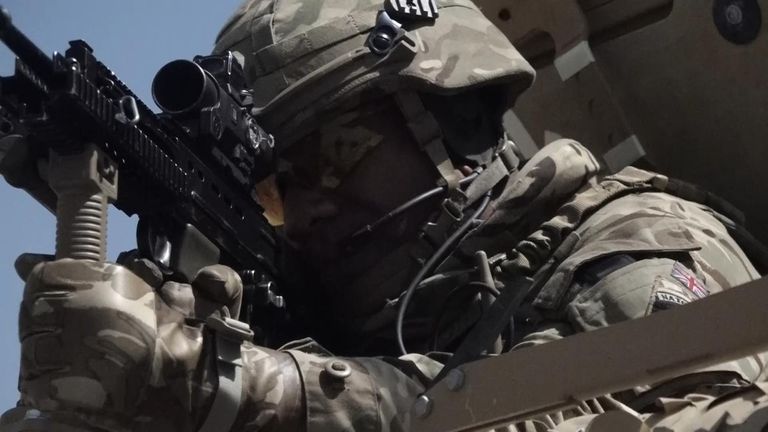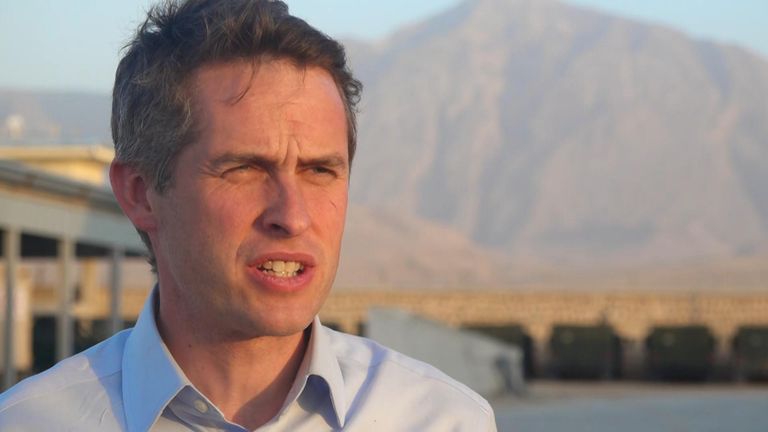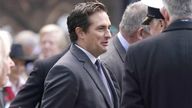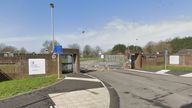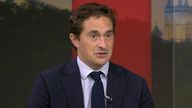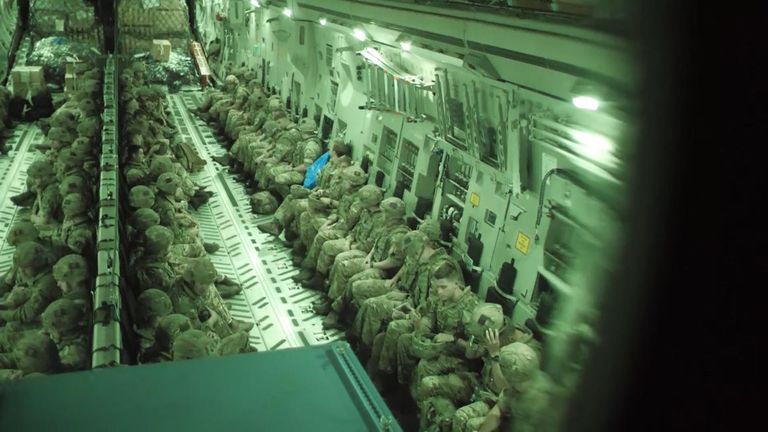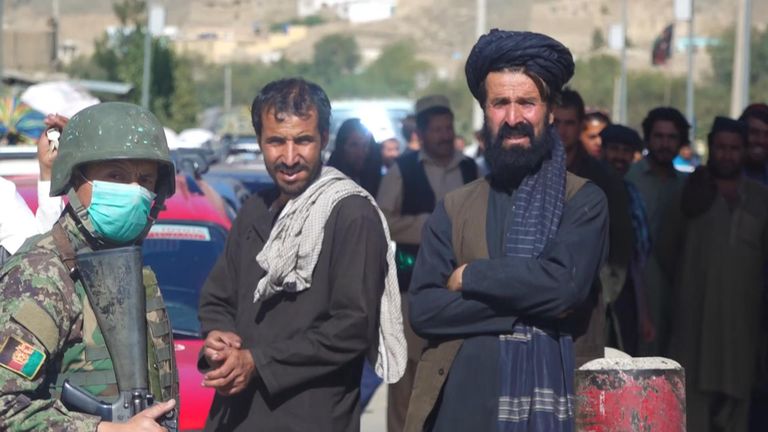Islamic State fighters in Afghanistan 'in touch with UK cells'
Defence Secretary Gavin Williamson tells Sky News that the UK must act to prevent "future Manchester-style attacks".
Monday 3 September 2018 11:28, UK
The British government has revealed that Islamic State fighters in Afghanistan are communicating with cells in the UK and western Europe with the potential to carry out attacks.
Although the rise of IS in Afghanistan has been well documented, it is the first time the government has confirmed the franchise now poses a direct threat to the UK.
On a visit to British troops in Afghanistan, the defence secretary told Sky News that the UK must act to prevent an attack.
"What we see is a real threat posed by these groups to the UK and we've got to be acting as we are to ensure that we do not see future Manchester-style attacks," Gavin Williamson said from the northern city of Mazeer-i-Shareef.
"We consistently see terrorist groups operating here in Afghanistan, [and] evidence of their links back not just to the United Kingdom but to the whole of continental Europe."
The group, known as IS-Khorasan or IS-K, is a rival to the Taliban and al Qaeda and has been targeted by US and British special forces in Afghanistan. Its latest leader, Abu Saad Erhabi, was killed in a US airstrike a week ago - he was the fourth IS leader to be killed in the country in the past few years.
Thousands of foreign fighters are believed to have arrived in Afghanistan having been pushed out of Iraq and Syria but the defence secretary's words suggest the group is more established than previously thought.
Sources wouldn't confirm whether any Britons are known to be among their number but said IS-K represents a "broad demographic".
However, General John Nicolson, the highly respected outgoing American head of the international coalition, rejected the claim that IS-K is growing.
"They have been able to replenish a portion of their losses by recruiting from other violent extremist organisations," he told Voice of America. "Despite this recruiting there are losing fighters and losing ground."
The news that IS-K poses a threat to the UK is a worrying development and comes as 440 extra British troops arrive in Afghanistan as part of an uplift requested by Washington to tackle the threat and stabilise the country.
Sky News was the only television news organisation to fly in with the troops. The total UK commitment to Afghanistan now numbers around 1,100 personnel, the third largest behind the United States and Germany.
The small increase comes four years after British troops ended their combat mission in the country and left Camp Bastion in Helmand. The move was criticised at the time as being too soon, but the defence secretary defended it, pointing out that Afghan forces, not the international coalition, are now in charge of security across the country.
"You've seen the Afghan government move forward very rapidly in terms of the development of their forces. I think what we have done is recognise where we can add value and support.
"The Afghan people are one of the most proud people and nations you could imagine. They want to be able to defend their country against the threats they face."
The arrival of more British forces in the country, to operate in non-combat roles, comes at a crucial moment.
President Ashraf Ghani has offered formal peace talks to the Taliban and, although nothing is likely to happen before the presidential elections next year, there is quiet optimism.
"We now have a real chance to make progress," Britain's deputy ambassador to Afghanistan, Giles Lever, told Sky News.
"I appreciate that people have been saying that for a long time but we have a particular set of circumstances this year which do represent qualitatively different from where we've seen before since 2001.
"First if all the president's peace offer to the Taliban, the offer of unconditional talks. Second, the US/South Asia strategy which doesn't set any timeline for US military support to Afghanistan.
"Finally, the Eid ceasefire in June where we've seen something we had not previously seen in 17 years which was a complete cessation of violence and Taliban fighters coming into the city and welcomed."
The suggestion of peace talks has attracted Russia, who recently proposed hosting the talks. Russian-funded radio stations are now broadcasting in Afghanistan, putting out anti-NATO messages on the airwaves. There are multiple reports that Russia has been arming the Taliban, sources say via Iran as a proxy.
Mr Williamson criticised Russia's increasing "meddling" in the country.
"What we want Russia to do is play a positive role in Afghanistan. I think that they could be playing a much more positive role," he said.

